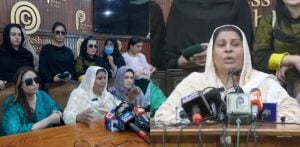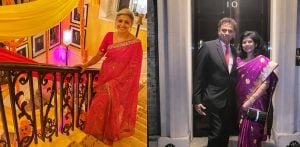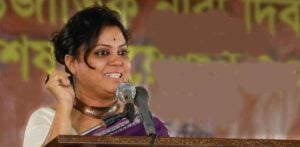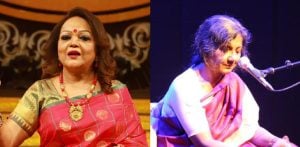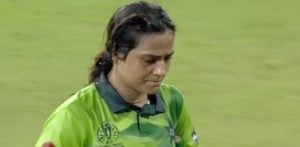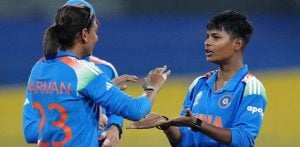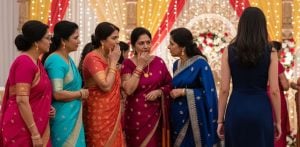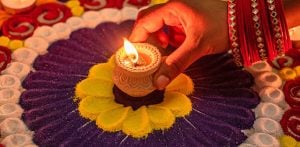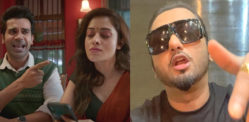“The natural progression is assumed to be marriage and kids."
Infertility in Desi communities remains a highly sensitive and emotive issue in South Asia and the diaspora.
Infertility affects millions worldwide. According to the World Health Organisation (WHO), one in six people globally is affected by infertility.
Many South Asian societies value procreation highly, seeing it as essential for marital fulfilment and the continuation of the family line.
Couples from Pakistani, Indian and Bengali backgrounds can find themselves facing pressure when it comes to having a child.
Yet, changes have occurred when it comes to attitudes and perceptions, further complicating the picture of how infertility is viewed within Desi communities.
DESIblitz explores how infertility is viewed within Desi communities and if anything has changed.
What is Infertility?

Infertility is defined as a “disease of the reproductive system”. Infertility affects both men and women with almost equal frequency.
People generally consider a couple infertile when pregnancy does not occur after at least 12 months of regular unprotected sexual activity.
Worldwide, 10 to 15% of couples of reproductive age are infertile, and prevalence varies from country to country.
There is a lack of awareness of ideas of primary infertility and secondary infertility.
Primary infertility is when a pregnancy has never happened. Primary infertility may occur due to several factors for both men and women.
Causes can be, for example:
- Medications or medical conditions like thyroid and polycystic ovary syndrome (PCOS)
- Sperm problems, including malformed sperm, low sperm count (oligospermia) and the absence of sperm in semen (azoospermia)
- Low egg count
- Sexually transmitted infections (STIs)
- Use of substances and alcohol
- Age
- Secondary infertility refers to couples who have been able to get pregnant at least once but now are unable to do so. It can affect one or both partners.
Some of the most common causes of secondary infertility are:
- Impaired or low sperm and/or eggs
- Complications from a previous pregnancy
- Complications from a previous surgery
- Medications or other medical conditions
- Use of substances and alcohol
- STIs
- Age
As can be seen, the causes of primary and secondary infertility can be the same.
Availability, access, and quality of interventions to address infertility can be a challenge, impacting finances, mental health and wellbeing.
Socio-cultural Expectations Around Marriage and Children

Many South Asian societies value procreation, viewing it as the main and natural step after marriage.
Desi communities and families can see children as key to maintaining the family line and caring for the elderly when they become adults.
Mariam Bibi*, a 42-year-old British Pakistani, told DESIblitz:
“Families and the Asian communities do see it being marriage and then kids. It’s seen as the usual way of things.
“The natural progression is assumed to be marriage and kids. I’ve heard it all my life; everyone in my family has.
“A lot of people still see children being the inevitable outcome of marriage.”
It took US-based Shrina Patel and her husband, Todd Grunow, two and a half years of trying to conceive before they had a “healthy pregnancy”.
After multiple rounds of unsuccessful intrauterine insemination, Patel and her husband tried IVF, which worked.
Avani Modi Sarkar is the co-founder of Modi Toys.
Sarker offered to host an Instagram giveaway in April 2019. In exchange for reading a blog about Sharina Patel’s fertility journey, 10 women would win Baby Ganesh plush toys to bring them luck on their own path to parenthood.
Sarkar said: “Trying to conceive is a difficult subject no matter what your background is, but especially in the South Asian community. It’s something that you struggle with in private.
“Luckily, I think women in the younger generation who were raised in America have a different outlook.”
Sociocultural expectations and ideals around marriage within the Desi community continue to link marriage with children. This can add pressure to those facing infertility issues.
Socio-Cultural Judgement through a Gendered Lens?

Within South Asian communities and families, the blame for infertility often disproportionately falls on women.
Mariam revealed: “When we couldn’t get pregnant in the first three years, the in-laws thought it was me.
“Even my family, in a supportive way, suggested to me and my husband that I get checked out.
“There were some whispers encouraging him to remarry for children from the older generation and his mum.”
“No one mentioned that it could be him. When we finally went and got tested, we learnt it was an issue with him, well, his sperm.
“It was more frustrating and disappointing than I can explain. I realised that there is this ingrained idea that fertility is a female issue and responsibility.
“Family functions were a nightmare, with people asking when we’d have children. The impact was felt on both of our mental health.”
Women can face societal judgement and suggestions of divorce. They can also face pressure to agree to their husbands having a second unregistered marriage.
In contrast, to protect the male partner’s social standing and ego, people might conceal male infertility.
Mariam stated: “Mother-in-law and everyone hushed up when it was found that it was my husband’s sperm issue and not me.
“Mother-in-law didn’t want anyone to talk about it. The talks of him marrying someone else stopped.
“It could have ended my marriage. But from the start, even when everyone thought the issue was with me, me and my husband were a unit.
“We were in pain, stressed and had arguments, but we had each other.”
Superstition within Cultures: The Idea of Bad Luck?

In South Asian communities, the stigma surrounding infertility is deeply entrenched, particularly for women.
Infertile women can be perceived as “bad luck”.
Maya Vasta*, a 27-year-old British Indian, recalled:
“I remember years ago being at a wedding, and someone old going keep so and so away from the bride. I remember the words ‘she’s bad luck’.
“When I asked my mum, she was uncomfortable and didn’t want to say.
“After I asked nonstop, she said some believe that a woman who can’t have kids is bad luck. Bad luck for those girls who are newly married.
“The conversation was important. Mum wanted to blank it; after we talked, she realised that kind of talk needs to be called out.”
The pressure to conform to traditional gender roles, where a woman’s worth is tied to her ability to bear children, can cause deep emotional pain.
It also leads to the marginalisation and mistreatment of women who struggle with infertility.
Rozina Ali*, a 55-year-old British Pakistani, asserted:
“I remember some saying stupid stuff about bad luck years ago, but it’s nonsense.
“Very old school superstition. You don’t hear it now; at least, no one I know has.”
There is a need for open conversations to dismantle socio-cultural stigma and judgments around those who face infertility, especially for women.
Changing Times and a Growing Understanding?

Culturally speaking, in Asian families and communities, infertility can be very difficult to discuss openly.
Consequently, there are often negative feelings, such as shame attached to being infertile.
However, opening up the conversation is a critical first step in taking action, thereby increasing the chances of seeking medical help at an early stage.
In addition, open conversations are key to determining whether there are other options. For example, adoption is another route to becoming parents.
Adam Shah*, a 38-year-old British Bengali, said:
“Things are changing, definitely my generation and younger.
“Me and my wife struggled to have another after our first baby, but we’d always wanted to adopt.
“And we did adopt, the kids are treated the same by everyone in the family.
“But there’s a long way to go in Asian communities and families.
“If we hadn’t had our first, it would have been different I think. I think our parents would have pressured us to look into what’s wrong and have a biological kid.
“For me, a kid is a kid; there’s more important ties than blood.”
Online social media platforms can also be avenues of support for those from Desi communities, helping to break barriers, isolation, and forced silence.
Writer Seetal Savla, who faced infertility issues, stated:
“Trying to Conceive (TTC) community on Instagram showed me that I didn’t have to hide my pain or truth.
“Seeing women’s posts, reading their comments and listening to their podcasts was a revelation: I finally felt seen and validated.”
There is a need to create a safe space for both Desi men and women to speak about issues encompassing infertility.
Within Desi communities, harmful socio-cultural ideals and pressures around fertility and having biological children need to be dismantled to foster understanding and open conversations.








